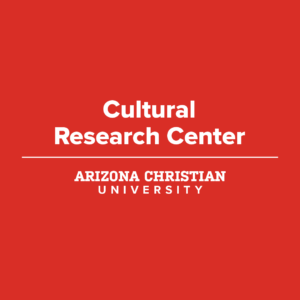GLENDALE, AZ (ANS) — “Simply and objectively stated, Christianity in this nation is rotting from the inside out,” says author and researcher Dr. George Barna in his latest report on the state of Christianity in America.
The latest findings from the American Worldview Inventory reveal that self and people’s emotions are the driving forces shaping Americans’ lives.
Note: Please help Assist News Service to be a voice for Christians around the world. Donate to ANS today

The latest insight from the nation’s largest, ongoing worldview research project—the American Worldview Inventory 2021 (AWVI 2021) conducted by the Cultural Research Center at Arizona Christian University—reveals that the worldview Americans are most likely to draw from is a relatively new and obscure philosophy of life known as Moralistic Therapeutic Deism (MTD).
Described as a ‘watered-down, feel-good, fake Christianity’ by Dr. George Barna, Director of Research at the CRC, MTD was initially identified and named by sociologists Christian Smith and Melinda Lundquist Denton in their 2005 book, Soul Searching: The Religious and Spiritual Lives of American Teenagers (Oxford University Press), based on national research among teenagers at the turn of the millennium. It demands little of its adherents, dominated teen church culture in the early 2000s, and is now the most popular worldview in America.
Smith and Denton identified at that time several core beliefs that characterized the thinking and behavior of the group.
Those components included:
* belief in a God who remains distant from people’s lives
* people are supposed to be good to each other (i.e., moral)
* the universal purpose of life is being happy and feeling good about oneself
* there are no absolute moral truths
* God allows “good people” into Heaven
* God places very limited demands on people
Not much, it appears, has changed.
According to new research from the CRC, although three out of four people (74%) who lean substantially on MTD for life guidance consider themselves to be Christians, numerous beliefs held by MTD-reliant adults conflict with biblical teaching. For instance:
* 95% do not consider success in life to be described as consistent obedience to God
* 91% do not believe that people are born into sin and need to be saved by Jesus Christ
* 88% say they get their primary moral guidance from various sources other than the Bible
* 76% contend that good people earn a place in Heaven through their good behavior
* 75% do not believe that God is the basis of all truth
* 74% believe in karma
* 73% say that having some type of religious faith is more important than which faith is embraced
* 71% do not believe that the Bible is the true and reliable communication from God
Other errant beliefs possessed by a majority of adults influenced by MTD include that they do not believe in the creation story, reject the existence of absolute moral truth, deny the existence of the Holy Spirit and believe it is possible to reach complete spiritual maturity in their lifetime.
As noted, a large majority—almost half of which are Catholics—of those who are attracted to MTD consider themselves to be Christian. The next largest segment associated with churches that are traditionally black, Protestant congregations.
Among racial and ethnic segments, Hispanics (more than 40% of whom are Catholic) showed the greatest alignment with MTD, with a majority of them (52%) drawing heavily or moderately from MTD perspectives. A significant age gap was evident in the research, as well, as those under age 50 were more than twice as likely as the 50-plus to find MTD appealing.
The AWVI 2021, a national study of biblical and competing worldviews, also found that about six out of ten LGBTQ adults are consistently engaged with MTD. Although relatively few spiritual skeptics buy into elements of MTD, individuals associated with Islam and Judaism were more likely than average to adopt many MTD tenets.
“In this distorted version of Christianity the emphasis is on self rather than God, and on emotion rather than truth. Those who adopt MTD views believe in innate human goodness and kindness,” Barna noted.
“They view God as a powerful but dispassionate observer who remains detached from human experience, unless circumstances make Him the solution of last resort. They believe that life is about individual happiness and that action producing positive personal outcomes gives meaning and purpose to life.”
Barna continued, “MTD is more about believing in and promoting the best interests of self, based on currently popular cultural thinking. Its proponents are not likely to prioritize knowing, loving, and serving a transcendent God,” he said.
“In their view, the local church exists primarily to offer supportive and upbeat community rather than worship, service, holiness, or a genuine relationship with God. And MTD is abundantly pluralistic, encouraging people to do whatever works or feels good rather than that which fits with biblical principles.”
As such, Barna contends that MTD is a worldview that is defined and driven by current culture more than by historic religious truths or a comprehensive and coherent doctrine. Consequently, this approach to spirituality asks little of its followers while providing the comfort, convenience, and community that those followers long for.
“The fact that a greater percentage of people who call themselves Christian draw from Moralistic Therapeutic Deism than from the Bible says a lot about the state of the Christian church in America, in all of its manifestations,” Barna lamented. “Simply and objectively stated, Christianity in this nation is rotting from the inside out.”
To read the report in its entirety, click here https://www.arizonachristian.edu/culturalresearchcenter/research/ .
The Cultural Research Center (CRC) at Arizona Christian University is located on the school’s campus in Glendale, Arizona, in the Phoenix metropolitan area. CRC conducts nationwide research studies to understand the intersection of faith and culture and shares that information with organizations dedicated to transforming American culture with biblical truth.
Like ACU, CRC embraces the Christian faith, as described in the Bible, but remains non-denominational and non-partisan. Access to past surveys conducted by CRC, as well as additional information about the Cultural Research Center, is available at www.culturalresearchcenter.com. Further information about Arizona Christian University is available at www.arizonachristian.edu
The author of this story, Michael Ireland, is a self-supported media missionary with ANS. Click here to support him as a missionary journalist.






